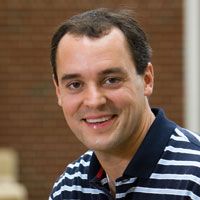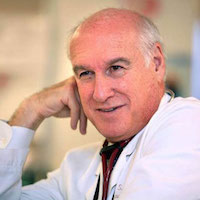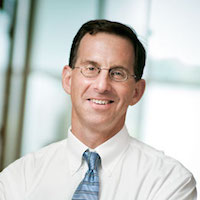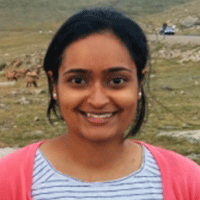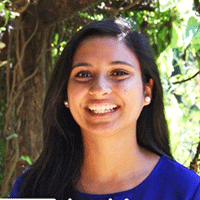UNC’s Endeavors magazine highlights Gillings School researchers
August 18, 2016
Endeavors, the online magazine highlighting research and creative activity at The University of North Carolina at Chapel Hill, featured six Gillings School of Global Public Health researchers in its August issue – Drs. Gregory Characklis, Myron Cohen, David Margolis and Wizdom Powell, and students Vidya Venkataramanan and Meaghan Nazareth.
_______________
Gregory Characklis, PhD, professor of environmental sciences and engineering and director of the UNC Institute for the Environment, was interviewed for the article, “The Weight of the Water on Their Shoulders.”
The article described research by Characklis that focuses on identifying the frequency and severity of droughts, how droughts affect water supply and strategies that reduce their impact:
“Historically, we’ve had plenty of water — not only in North Carolina but the Southeast, in general,” Characklis says. “So, we never designed the rules by which we manage water or our infrastructure to accommodate water scarcity. But as the population has expanded, we’re to the point when we don’t always have as much water as we’d like all the time. We need to set up infrastructure that can deliver it, as well as rules for how we will manage water during dry conditions.”
Read more of the Endeavors article about Characklis here.
________________
In the article “Blood, Sweat and Tears,” Endeavors follows the timeline for UNC’s research on blood disorders, beginning in 1947. The early work set the state for major breakthroughs made in HIV/AIDS by Drs. Myron Cohen and David Margolis.
Myron Cohen, MD, is professor of epidemiology at the Gillings School, the Yeargan-Bate Eminent Professor of Medicine, Microbiology and Immunology in the School of Medicine, and UNC’s associate vice chancellor for global health and director of the university’s Institute for Global Health and Infectious Diseases.
In 1980, a young doctor named Myron Cohen arrived at UNC. An assistant professor in the School of Medicine at the time, he also worked with UNC Hospitals’ consultation service, offering medical evaluations to patients there. The following year, he walked into an exam room to find a young, feverish man with hemophilia lying on a bed. The man’s lymph nodes had swelled to the size of a small fist. His cancer tests came back negative — but his body continued to deteriorate.
“I knew from the literature,” Cohen says, “that I was seeing our first patient with AIDS — a sad privilege.”
David Margolis, MD, is professor of epidemiology at the Gillings School and of medicine and microbiology and immunology in the School of Medicine. He directs UNC’s HIV Cure Center and is leader of the Collaboratory of AIDS Researchers for Eradication (CARE), which brings together leading minds from top U.S. academic institutions in the fields of HIV latency with the goal of finding a cure for HIV.
David Margolis became one of the first researchers to develop ways to force HIV particles out of latency — a major hurdle to finding a cure. He recently was awarded $23 million over the next five years to pursue a cure for the disease.
Read Endeavors’ article about the work of Cohen and Margolis here.
________________
Wizdom Powell, PhD, associate professor of health behavior, Vidya Venkataramanan, doctoral student in environmental sciences and engineering, and Meaghan Nazareth, undergraduate in biostatistics, were honored in Endeavors’ “Women in Science” feature.
Powell, a trained psychologist and population health disparities researcher, focuses her work on the social determinants of health inequities among boys and men of color. As she describes in the Endeavors interview:
Most of my research has taken place in barbershops across the United States. In Augusta, Georgia, I encountered an 80-year-old African-American) man who wanted to participate in our survey research study, but he could not read. The survey typically took about 45 minutes to complete — I spent more than three hours with him compiling responses to the questions. When we got to the portion of the survey that asked about experiences with racism, he recounted powerful stories about the kinds of oppositions he faced. It was such a privilege to hear and learn from him. In many ways, his words helped shape how I think about African-American men’s exposure to racism and its effects on their health.
________________
Venkataramanan works at The Water Institute at UNC on projects aimed to improve rural community sanitation projects.
In the Q&A interview with Endeavors, she shared a pivotal moment that helped her choose research as a career path:
While working for a public health organization in India, I entered the hamlet of a very poor and highly discriminated against pig-rearing community to understand their priorities and challenges relating to a disease called Japanese encephalitis.
I spent a few hours hearing people’s stories; walking around with people to observe the water, sanitation, and hygiene situation; and doing participatory exercises with them to better understand their social-ecological situation.
I realized that this type of qualitative research fed into my journalistic desire to capture people’s experiences and give voice to those who may not get asked often enough about what they want and how they live.
________________
Nazareth, a senior biostatistics major and chemistry minor, is interested in research that improves health outcomes among youth.
“When I became a research assistant and started working with patients,” she said, “I realized I’d found a way to positively impact people while simultaneously contributing to the scientific community. For example,” she continued:
Last year, one of our major projects [through the UNC STARx Program] was the development of a comprehensive content booklet to teach youth with chronic kidney disease (CKD) about what they need to know to successfully manage it. The booklet includes information about CKD, nutrition, insurance, finding new providers, and other important topics.
Whether they learn a little bit more about their medications or gain an improved understanding of insurance, it’s always rewarding to know that we are helping to educate patients to be able to better take care of themselves in the future.
Read more about Powell, Venkataramanan and Nazareth on the Endeavors website.
Gillings School of Global Public Health contact: David Pesci, director of communications, (919) 962-2600 or dpesci@unc.edu

